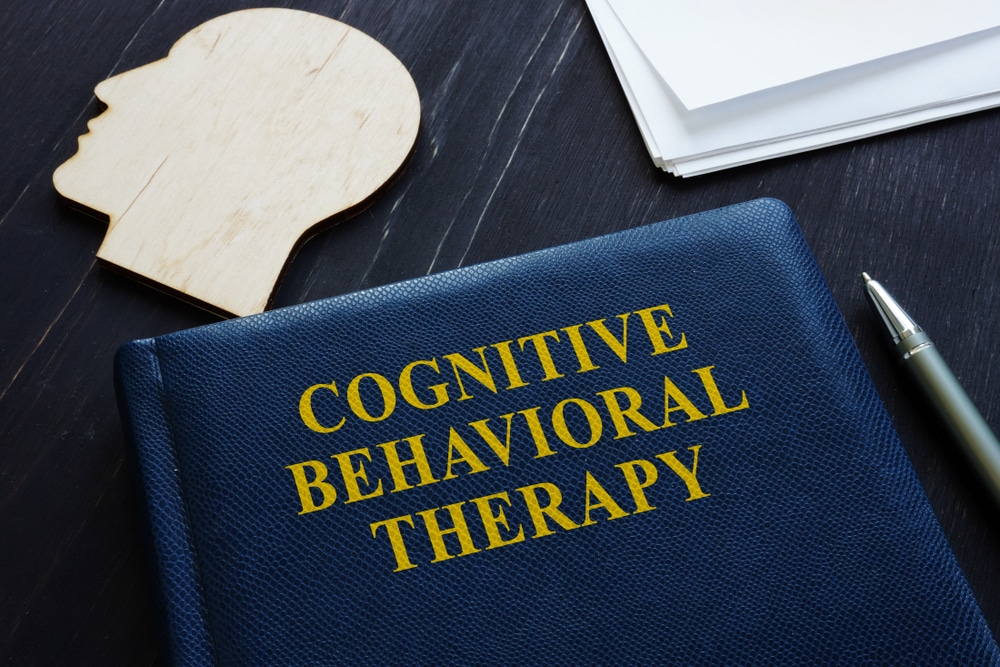What are the first things that come to mind when you think of weight loss? Diet and vigorous exercises like weight training or running, right? But the truth is that weight loss is just more than the two. We often forget the approach to change and the process of implementing change. So, as crucial as getting a diet and exercise plan is, it is equally vital to making lifestyle adjustments. Psychology and behavioral change are thus vital elements of weight loss. We explore the facts about cognitive behavioral therapy for weight loss.
Cognitive Behavioral Therapy For Weight Loss: What Is The Treatment For Obesity?
Obesity is a severe health condition that affects many people the world over. Over the recent years, the prevalence of obesity has tripled, with about 650 million adults 18 years and older being obese. According to WHO, 13% of the total adult population are obese, with 11% of males and 15% of females (5).
Obesity is defined as excessive fat accumulation that poses a significant health risk. Body Mass Index of 25 is considered overweight, while a BMI of 30 and over is obese. There are 3 classes of obesity (3):
- BMI of 30 to < 35 – class one obesity
- BMI of 35 to < 40 – class two obesity
- BMI of over 40 – class three obesity (severe or morbid obesity)
Obesity increases the risk of cardiovascular diseases, hypertension, diabetes, and osteoarthritis. Carrying excess weight is also linked to certain types of cancer, including breast, liver, kidney, prostate, colon, ovarian, and endometrial cancer.
There are several ways to achieve and maintain a stable weight. Given that weight loss is frustrating, even losing just a small percentage of the weight is essential and can make a difference to your health risks. In cases where diet and exercise do not help, surgery may be an option.

Here are several weight loss therapies that help manage obesity:
Physical Activity
Much as your body burns calories at rest, you burn even more calories when you exercise. However, you will not shed all the excess weight at once; the process takes time. To shed one pound (about 0.45 kgs), you need to burn at least 3,500 more calories than you consume (2).
You can also enroll in a weight loss program in the gym. You will do more strenuous exercises like skipping rope and lifting weights. One important thing is to start slow so that you do not risk injury.
Ways to start getting more active include:
- Walking to the grocery store instead of driving.
- Taking the stairs instead of the elevator.
- Walking the dog every evening.
- Get off the bus or train one stop before your destination.
- Swimming and biking.
 Dietary Changes
Dietary Changes
Consuming more calories than your body burns may cause weight gain over time. Overeating may also cause weight gain. Your general practitioner or dietitian may help you learn how to change eating habits to lose weight. Making dietary changes is the best therapy for overeating, but cognitive behavioral therapy is also used.
Certain types of food may cause weight gain. Most ultra processed foods contain high amounts of unhealthy fats and added sugars such as high fructose corn syrup, making them easy to overeat. Consuming ultra processed foods is associated with a higher risk of obesity (10)
Limiting the intake of ultra-processed foods is an excellent place to start when trying to lose weight. Instead, take more whole foods such as fruits, vegetables, whole grains, and lean protein. Eating high fiber diets helps you stay full for longer, making it hard to overeat and snack often between meals (4).
A high protein diet is also beneficial for weight loss. It helps regulate the hunger and satiety hormones ghrelin and leptin, helping promote fullness and satiety. Protein also has the highest thermic effect of food, meaning it requires more energy to digest than carbohydrate or fat. Thus it temporarily boosts metabolism (8).
Read More: The Fundamentals Of A Balanced Diet: Foods, Benefits, Weight Loss
 Surgery
Surgery
In the cases of severe obesity, bariatric surgery is sometimes considered. Weight loss surgery involves taking out or changing part of the small intestine or stomach to reduce food intake (11). This can help a person lose weight and reduce the risk of developing disease hypertension, or Diabetes.
Gastric bypass surgery is done so that food bypasses some parts of the digestive system. It may also be used to reduce the size of the stomach. Bypass surgery is effective, but there is a risk of mineral and vitamin deficiencies. A surgeon may also insert a gastric band to reduce the size of the stomach.
 Weight Loss Drugs
Weight Loss Drugs
Sometimes, a doctor may prescribe medications to help you lose weight. These medications work in different ways, helping you feel full sooner or others, making you less hungry. Others may operate by making it difficult for your body to absorb fats from foods. Weight loss drugs include Liraglutide, orlistat, Phentermine-topiramate, and Phentermine-topiramate.
Weight-loss medications are prescribed when an individual’s weight poses a health risk and if dietary changes and exercise are not working. These medications should be taken alongside a low-calorie diet. Common side effects include gastrointestinal symptoms such as vomiting, nausea, diarrhea, and constipation (7).
Hormonal Therapy
After menopause, losing weight among women becomes even more difficult. This is attributed to the declining levels of estrogen. So for obese menopausal females, hormone replacement therapy may help promote weight loss and prevent weight gain (1).
Even with hormonal therapy, diet and exercise are still crucial. Hormonal therapy is not for everyone, and only a qualified doctor should recommend it. HRT has a few side effects, including tender breasts, mood fluctuations, headaches, and fluid retention.
 Why Is Losing Weight So Mentally Hard?
Why Is Losing Weight So Mentally Hard?
Weight loss is usually an arduous journey. It is frustrating and requires a lot of patience and several lifestyle changes, including eating healthy, exercising, and cutting back on alcohol and building up self-discipline. So weight loss also has a psychological aspect to it.
Obesity psychology is just as important as coming up with a diet and workout plan. Our bodies and brains are designed to eat. Weight gain is also just not because of laziness, but genetics and lifelong eating habits have a part in the weight gain and obesity menace.
Weight loss is mentally hard because people don’t create an environment for success. They don’t fully adopt healthy habits; all they do is wing it and hope it somehow works. The key is to develop healthy habits and be consistent until it becomes a lifestyle.
Intense sweat sessions, working weight loss tips, lip-smacking recipes come in one package with the BetterMe app. And all of it is at your fingertips, start transforming your life now!
Here’s why losing weight can be so mentally exhausting:
 You Rely Only On Will Power
You Rely Only On Will Power
The reason why weight loss can be mentally challenging is that you solely rely on willpower. You start on a high note, but eventually, that vigor wears out. So if your target is losing two pounds, you find that you get it well done every week at first.
But over time, as your willpower decreases, you find it hard to get out of your bed to go out for your morning run. You also find it challenging to go to the gym as you routinely would. So relying only on motivation will not yield good weight loss results.
You Have No Self-Discipline
To get anything done, from your work project to losing weight or eating a healthy diet. So with only motivation and no self-discipline, then weight loss becomes an uphill task. After setting your goals and coming up with a weight management plan, you need to have the self-discipline to implement these changes.
You Have Formed Poor Habits
We are the products of our habits. You have become used to that chocolate donut you take when you arrive at work or grabbing french fries on your way home in the evening. You also find it hard to walk to the grocery store and binge-watch while taking a bag of fat-filled chips.
Habits are the core of consistency. You shift from conscious effort to an automated mode. So healthy eating, avoiding processed foods, and exercise should become a natural part of your routine.
Read More: How To Stop Eating Junk Food: Tips And Tricks To Improve Your Eating Habits
 You Are Yet To Discover Your Identity
You Are Yet To Discover Your Identity
Your Identity is an evolution of your habits. Once you are consistent with your habits, they become your identity. So hitting the gym will be something you have to do; you will go to the gym because it is what you do. If you do not discover your identity, it is unlikely that you will lose and maintain a healthy weight in the long run.
What Is Cognitive Behavioral Therapy For Obesity?
Cognitive behavioral therapy for obesity is a treatment that combines traditional behavioral therapy (such as stimulus control, goal setting, self-discipline, and relapse prevention) with a series of cognitive strategies (6). Most conventional treatment methods for obesity focus on the biological and behavioral aspects that regulate food intake and energy expenditure. Thus, these methods ignore the cognitive process that affects a person’s ability to stick to lifestyle changes over time.
The primary goals of using cognitive behavioral therapy for weight loss are to help individuals:
- Attain, acquire and maintain healthy weight loss
- Adopt a lifestyle suitable for weight control
- Develop a positive weight control mindset.
But, what does a behavioral therapist do? Like other forms of behavioral therapy, a behavioral therapist works with an individual to create a personalized CBT- OB treatment plan. Given that every person is different, the needs tend to vary from one patient to another.
Therapies for obesity help individuals attain weight loss by reducing dysfunctional behaviors and changing unreasonable weight objectives. Psychotherapies also help people change the negative self-perceptions and improve mental abilities like the customer’s capacity to self-screen (such as using journals).
 How Does The Therapy Work?
How Does The Therapy Work?
Obesity is both a behavioral and cognitive condition. Cognitive behavioral therapy for weight loss is an effective method and has been shown to reduce binge eating disorders (9). CBT-OB involves personalized recommendations for diet and exercise as well as behavioral and cognitive therapies (6). Cognitive behavioral therapy can help individuals lose weight by:
- Aiding an individual to control their diet
- Helping to increase motivation to work out
- Providing tools to deal with any lapses in diet that the individual will encounter
- Provide long-term weight management skills
- Changing an individual’s body image and their assumption for self-perception
- Improving an individual’s confidence
- Helping with prevention and relieving of stress (a major motivation for stress eating)
- Helping in setting achievable weight loss goals
What Are The Cognitive Behavioral Therapy Techniques For Weight Loss?
Before cognitive behavioral therapy is initiated, there are a few preparatory steps. The preparatory phase is crucial as it ensures the patient is ready to be actively involved in the treatment process. This phase can last two or three sessions.
First, the therapist tries to develop a trusting relationship with the patient, promoting the patient’s willingness to share information. Then the therapist assesses the nature and severity of obesity. Afterward, the therapist and patient chart the best way forward, including looking at the concerns and questions the patient may have concerning the treatment.
 Goal Setting
Goal Setting
Setting small achievable goals is the first step to weight loss. After realizing the need to lose the excess body weight that poses several health risks, it is necessary to set goals. Ensure you set specific, measurable, achievable goals that are not overly ambitious.
These include making dietary changes, such as limiting processed foods, eating more whole foods, and practicing mindful eating. For example, instead of eating a chocolate pie for dessert, take a fruit instead or drink fresh fruit juice with a vegetable omelet instead of breakfast cereals.
You also need to set goals that help you be more physically active. Being physically active starts with walking more to doing more chores around the house instead of just sitting and watching TV. So you can set goals to walk, swim, jog, cycle, run and visit the gym more. For example, you can decide to schedule a 15-minute work every evening and to go to the gym thrice a week.
Self-Discipline
After setting your goals, you need the discipline to be able to achieve these goals. In the long run, these small changes become habits that eventually form a healthy lifestyle. Weight loss is more than going to the gym. It is a wholesome process that focuses on an individual’s well-being.
So you need to exercise your self-control and discipline muscles constantly. Every time you get the urge to grab a packet of a sugar-filled candy bar or skip an exercise session, but you resist it, you are growing your self-discipline. It is self-discipline that is the core of long-term behavior change.
 Self-Monitoring
Self-Monitoring
Self-monitoring refers to observing and keeping track of your diet, exercise, and weight-loss behaviors. Monitoring your progress does not mean that you beat yourself up over small or no improvements. When you monitor your habits, you start to notice obstacles, pay attention to your food and exercise patterns, and identify the challenges of making behavior modifications.
Your self records should be accurate to help you and your therapist adequately evaluate your progress through the CBT-OB. Your therapist will guide you through this process so that you yield maximum results. Better awareness of your experience enables you to form new habits and stay consistent when the initial motivation is fading.
Feedback And Reinforcement
Getting feedback from friends, family, and your health care providers can be helpful. Sometimes you ask, ‘how to help people lose weight?’ Giving continued support as a friend or family member tries to lose weight gives them confidence and encourages them. Positive feedback helps you stay motivated and remain consistent in progressively forming new habits.
Outside feedback may also help you keep your goals realistic and not overly ambitious. When seeing your therapist, sharing what obstacles you are facing and your progress enables them to provide working solutions. Robust support systems are helpful when it comes to making long-term behavior modifications.
Incentives
Incentives and rewards people widely use in different forms of behavioral therapy. These rewards promote behavior change. The first reward is the feeling that comes with making a positive change and then making progress.
Common incentives used include cash incentives, free health coaching, gift cards, and discounts to those who meet specific requirements. CBT-OB encourages that you reward yourself after you have completed your workout routine. Food-based incentives are, however, discouraged.
Cognitive Behavioral Therapy For Weight Loss: Conclusion
Obesity is a growing concern worldwide. While many treatment options are being explored, the obesity prevalence remains high. Most conventional treatments focus on the physical aspect of weight loss and ignore the psychological part. Weight loss is a broad compass that integrates both dietary changes, exercise, and behavioral changes.
Thus, cognitive behavioral therapy is an essential method in helping obese and overweight individuals achieve a healthy weight and keep it under control. Lifestyle changes are not achieved overnight. They take supported endeavors over the long haul, and whether we accomplish our objectives relies upon how we make them, our outlook, and what we set up to look after inspiration.
If you want your weight loss plan to be efficient, don’t forget to do some exercise on the regular basis.
DISCLAIMER:
This article is intended for general informational purposes only and does not address individual circumstances. It is not a substitute for professional advice or help and should not be relied on to make decisions of any kind. Any action you take upon the information presented in this article is strictly at your own risk and responsibility!
SOURCES:
- Beneficial effect of hormone replacement therapy on weight loss in obese menopausal women (1999, pubmed.ncbi.nlm.nih.gov)
- Counting calories: Get back to weight-loss basics (2010, mayoclinic.org)
- Defining Adult Overweight & Obesity | Overweight & Obesity (2021, cdc.gov)
- Dietary fat, fibre, satiation, and satiety-a systematic review of acute studies (2019, pubmed.ncbi.nlm.nih.gov)
- Obesity and overweight (2020, who.int)
- Personalized cognitive-behavioural therapy for obesity (CBT-OB): theory, strategies and procedures (2020, bpsmedicine.biomedcentral.com)
- Prescription Medications to Treat Overweight and Obesity | NIDDK (2016, niddk.nih.gov)
- Protein, weight management, and satiety (2008, pubmed.ncbi.nlm.nih.gov)
- Residential cognitive-behavioral weight-loss intervention for obesity with and without binge-eating disorder: A prospective case-control study with five-year follow-up (2016, pubmed.ncbi.nlm.nih.gov)
- Ultraprocessed food consumption and risk of overweight and obesity: the University of Navarra Follow-Up (SUN) cohort study (2016, academic.oup.com)
- Weight loss surgery (2020, nhs.uk)

















